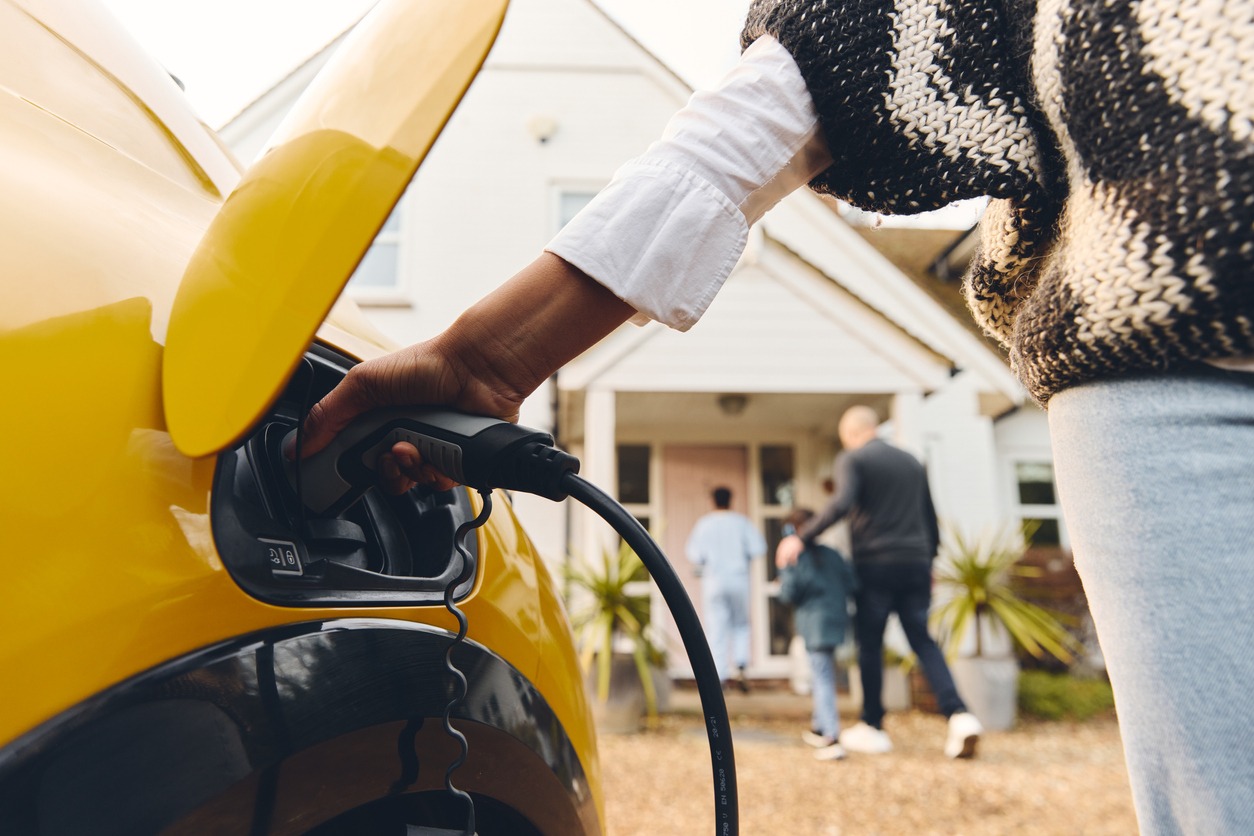We all know that electric vehicles are undoubtedly the future of transportation. With more and more people buying electric cars, ensuring you have the right home charger for the outdoors is essential.
When looking for a new home charger for your EV, selecting the most efficient charger can be challenging.
This blog post will help you finish your search. From general information on the various types of chargers to specific tips and recommendations, this blog post will help guide you in choosing the best EV home charger for outdoor use.
1. What are the Types of EV Home Chargers for Outdoor Use?
There are different types of home chargers for electric vehicles. Before you head out to the store and buy one, it’s essential that you first get an understanding of what kind of charger will best serve your needs.
The following are the three most common types of chargers. Also, you can prefer EV charger which is one of the best options for your EV vehicle.
-
Level 1 EV Charger
Level 1 chargers are the most common home charger for outdoor use. The charging cable is connected to a 120-volt, single-phase circuit. The vehicle is charged at 2 to 3 miles per hour. This charger can be connected directly to your home’s electrical service. A breaker or a circuit is not necessary. It’s a popular option for both personal and commercial use.
-
Level 2 EV Charger
Level 2 chargers are typically more expensive than level 1 but provide faster charging times. They have a faster increase in current than level 1 chargers and are usually electronically controlled to adjust the charging rate to maximize efficiency automatically.
Level 2 chargers can be installed outdoors, but you must have a weatherproof enclosure. Most people install the charger in their garage or by their driveway. Level 2 chargers allow you to recharge the batteries at the fastest rate possible for your EV.
-
Level 3 EV Charger
Level 3 chargers can provide the fastest charging times possible (if using suitable hardware). These charge at DC power and allow for multiple charging sessions in one day or overnight with minimal or no loss of charge (depending on the specific charger).
Level 3 chargers also have an automatic connection feature, which allows you to start charging the EV immediately. Level 3 chargers are typically used for commercial and retail applications.
2. Considerations in Selecting Outdoor EV Home Chargers
When selecting an EV home charger, you need to consider several factors. These include:
-
EV Charging Safeguards
The home charger you choose should have safeguards to protect its circuitry from short-circuiting and overheating. The charger should also have a low voltage cutoff. This safeguards the car from overcharging, which can lead to fire or explosion.
Different brands of EV chargers have different safety features. Some have sophisticated safety precautions to prevent overheating, some have built-in insurance, and some are UL certified. Before purchasing an EV charger, ensure you choose one with the necessary precautions for outdoor use.
-
EV and Charging Station Ingress Protection
The second thing you need to do before buying a new EV charger is to check the ingress protection. When choosing an EV home charger, how well it protects chargers from the public should also be considered. Your Charger must protect its belongings from rain, snow, moisture, wind, and other elements.
This means checking how well the charger will be protected from dust, water, and physical damage. This is essential if you are planning to purchase an outdoor EV charger for your home.
-
Charging Station Regulations
When choosing an EV home charger, it is also essential to consider any regulations your local government may have. Certain charging stations are required to comply with the applicable regulations within your region. It is essential to contact your local utility company, building department, and other applicable authorities before installing an EV home charger, especially if it will be located outside of your home.
Some countries are more strict about charging than others. For example, in the United States, there is a specific limit of 1 Amp for public chargers. Other countries have no limits. If the local government has imposed limits, ensure you purchase the appropriate charger for outdoor use.
Conclusion
There are many factors to consider when selecting a suitable EV home charger for outdoor use. Enjoying the great benefits of being an EV owner is only possible if you have a reliable home charger. When choosing the best EV home charger for outdoor use, keep in mind that safety and efficiency are top priorities.
While every charger will charge your car, a great deal of variation among models sets them apart. To make the most informed decision, consider various factors, including cost and warranty, installation difficulty, safety features, and range.

